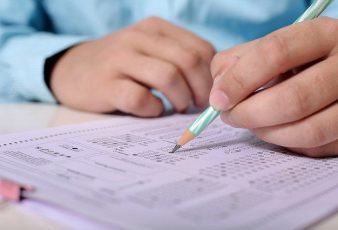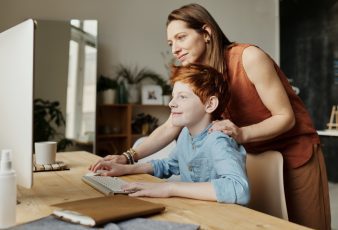As a parent, it is your job to help your child learn how to overcome their learning disabilities. You can do this by first getting them the help they need from a psychologist or school. Then it’s just about working together as a family with the teachers and other staff at school to ensure that your child gets what they will need out of education and how best to help them learn things like reading and math concepts.
Get Help ASAP
Once you have identified that your child has a learning disability, it is important to get the help they need as quickly as possible. The sooner a child can begin to receive therapy and accommodations at school, the better. Some common types of professional help include:
- A psychologist
- A speech therapist
- An occupational therapist (OT)
- A school for LD students (these are also called “learning centers”)
- Tutors or other academic support services
See a Psychologist
When you have a child with learning disabilities, it can be helpful to see a paediatric psychologist. A psychologist can help you and your child work through their problems, understand what is going on, and find ways to cope with their problems.
A good psychologist will take the time to get to know both of you before recommending any treatments or therapies. They may have questions about:
- Your child’s behavior at home and in school
- Their strengths and weaknesses (academically as well as socially)
- How they deal with stress and frustration
Attend Schools For LD Students
Children with learning disabilities often struggle in school. They may have trouble with reading, writing, or math and feel frustrated. If you’re worried your child has a learning disability, it’s important to take action right away so they can get the support they need from schools for students with learning disabilities.
Learning disabilities are common among children and adults. According to the Health Resources and Services Administration (HRSA), 5% of adults have an intellectual disability that affects their ability to function in daily life activities such as reading, communicating effectively with others, or performing simple tasks such as dressing or bathing themselves without assistance from another person or technology like adaptive devices like voice-activated computers for typing commands into programs without having physical limitations preventing them from doing so otherwise
Seek Help From Speech & Language Pathologists
Speech and language pathologists are trained to help with communication problems. An expert in paediatric speech pathology can help with speech problems, such as stuttering, or language problems like dyslexia. Pathologists also specialize in helping patients who have aphasia (which refers to an inability to understand or express language).
Don’t Give Up On Your Child’s Education
Don’t give up on your child’s education. Pay for speech therapy, occupational therapy, etc. if you can afford it for your child. Don’t give up hope on your child learning how to do things on their own.
Work Together With Teachers
You should work together with teachers and the school system to ensure that your child gets what they will need out of education and how best to help them learn. You must make sure they know about their learning disability, as well as how best to help them learn in the classroom. Asking for help when you or your child need it is one of the most important things you can do.
Help Them Learn To Do Things On Their Own
Don’t give up hope on your child learning how to do things on their own. They will most likely get there eventually, but it just may take them longer than others. The key is not to give up on them or yourself during the process and remember that the way you approach learning disabilities can have a huge impact on how they are treated later in life. You are an important part of their education, and if you want something different for them than what has been provided by traditional methods then nothing can stop you from finding a better solution for both of you!
Don’t give up hope on your child’s future either – this is especially important when working with children with learning disabilities because many of these kids have been let down by society at large before even entering kindergarten which means there’s no telling what sort of gap exists between where they thought they’d be now versus where they are right now (if anything). But don’t worry – there are plenty of resources available online today so keep searching until someone tells you exactly what needs to be done next time around (such as contacting another parent whose child has similar struggles).
Remind Your Child That They Can Do
It’s important to remember that your child will grow up with a learning disability, and it’s also important to remember that they can do anything they put their mind to. It is so important for your child not to see themselves as defined by their disability, but rather as an individual who happens to have a certain learning disability.
It is also very important not to let this hold them back in any way. Remind them constantly of their potential greatness and encourage them at every possible moment by telling them how amazing they are and how much you believe in them! Don’t ever let their disabilities make you feel guilty either—everybody has something wrong with them, but we all still try our hardest every day!
Conclusion
It can be overwhelming when your child struggles with learning disabilities, but don’t give up on them! They will learn how to do things eventually; it just takes time and patience on both of your parts.
We hope you have found this article helpful. If you have, please share it with your friends and family! Let us know what you think in the comments below or on social media (Facebook and Twitter).
Additionals:




























